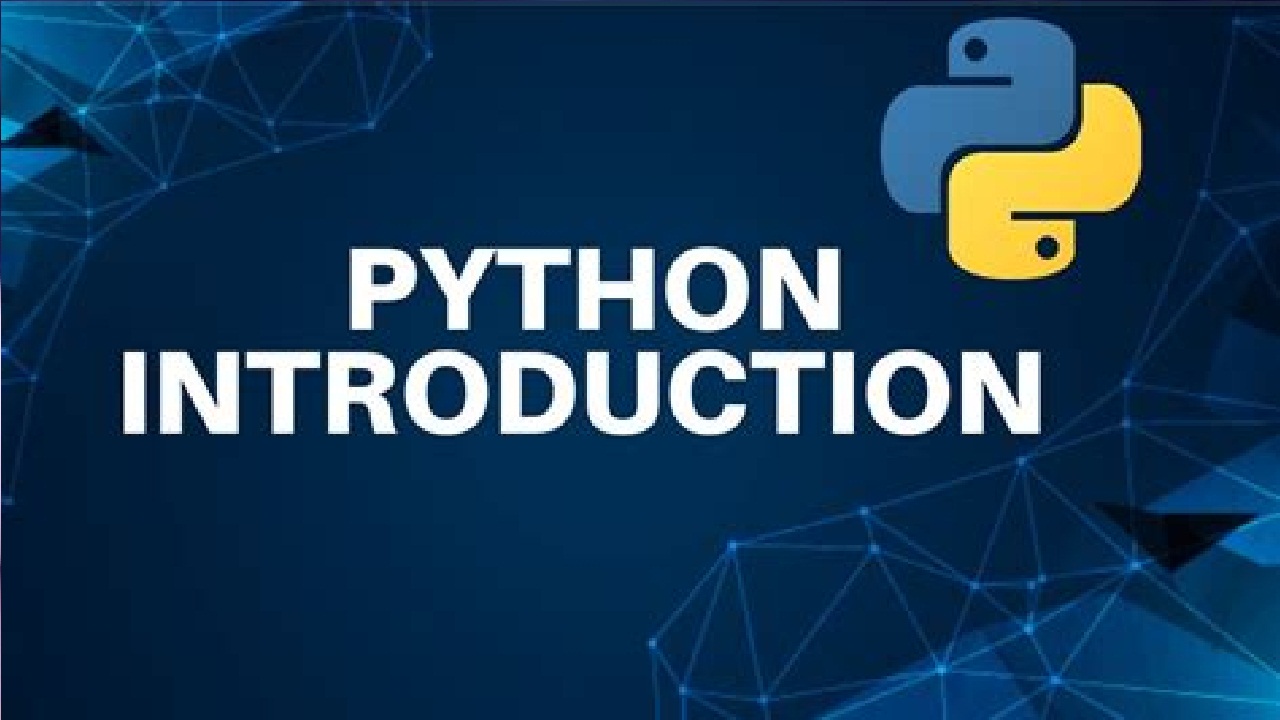
Python has become one of the most popular programming languages in recent years, thanks to its simplicity, versatility, and readability. With its beginner-friendly syntax and extensive range of libraries and frameworks, Python has gained immense popularity across various domains, including web development, data science, artificial intelligence, and more. In this article, we will provide you with a comprehensive introduction to Python, highlighting its key features and benefits. Whether you are a novice programmer or an experienced developer, understanding the fundamentals of Python will equip you with a powerful tool set for building diverse and innovative applications.
Python, created by Guido van Rossum in the late 1980s, is an open-source, high-level, and interpreted programming language. Its design philosophy emphasizes code readability and simplicity, making it an ideal choice for beginners and experienced developers alike. Python's clean syntax and easy-to-understand structure enable programmers to express concepts in fewer lines of code, enhancing productivity and maintainability.
Simplicity and Readability
Python's syntax is known for its simplicity and readability. It uses indentation and white space to define code blocks, promoting clean and well-organized code. This feature makes Python highly accessible, allowing programmers to focus on problem-solving rather than dealing with complex syntax rules. The readability of Python code also facilitates collaboration among developers, making it easier to understand and maintain projects over time.
Versatility and Extensive Libraries
Python offers a vast ecosystem of libraries and frameworks that extend its capabilities for various applications. The Python Package Index (PyPI) hosts thousands of third-party libraries, providing solutions for everything from web development (Django, Flask) to scientific computing (NumPy, SciPy) and data analysis (Pandas). These libraries enable developers to leverage existing code, accelerate development, and solve complex problems efficiently.
Cross-Platform Compatibility
Python is a cross-platform language, meaning it can run on multiple operating systems such as Windows, macOS, and Linux. This portability allows developers to write code on one platform and deploy it seamlessly on another, without the need for extensive modifications. Cross-platform compatibility enhances collaboration and ensures that Python applications can reach a wider audience.
Strong Community Support
Python boasts a vibrant and active community of developers, educators, and enthusiasts. This community-driven nature results in an abundance of resources, including online tutorials, documentation, and forums, where developers can seek assistance and share knowledge. The collaborative environment fosters continuous learning and innovation, making Python an evolving language with regular updates and improvements.
When comparing Python with other programming languages like Java, C++, or JavaScript, Python has its unique strengths. Python's simplicity and readability make it an excellent choice for beginners and rapid prototyping. While it may not be as performant as lower-level languages, Python's extensive library ecosystem, versatility, and ease of use contribute to its popularity in various domains, including web development, data science, machine learning, and automation.
Python Frameworks
Python offers several frameworks that simplify web development tasks. Django, known for its robustness and scalability, provides a full-featured web framework with batteries included. Flask, on the other hand, is a lightweight micro-framework that allows developers to build scaleable and modular web applications. Choosing the right framework depends on the project requirements and development preferences.
Python in Data Science
Python has gained significant traction in the field of data science due to its extensive libraries and frameworks. Libraries like NumPy, SciPy, Pandas, and scikit provide powerful tools for data manipulation, analysis, and machine learning. The Jupyter Notebook, an interactive computing environment, is widely used in data science for exploratory data analysis and sharing research findings.
Python for Artificial Intelligence
Python's simplicity and the availability of libraries like TensorFlow, Keras, and PyTorch have made it a go-to language for artificial intelligence (AI) development. These libraries provide robust support for building and training neural networks, enabling developers to create sophisticated AI models for tasks such as image recognition, natural language processing, and reinforcement learning.
Python's popularity continues to rise, and its future looks promising. The language is constantly evolving with new features and improvements, driven by the active Python community. Its simplicity and versatility make it an attractive choice for both beginners and experienced developers, ensuring a strong demand for Python skills in the job market.
Furthermore, Python's adoption in emerging fields like data science, AI, and automation ensures its relevance and longevity. As technology advancements and industry demands evolve, Python is poised to play a crucial role in shaping the future of these domains.
In conclusion, Python's simplicity, versatility, and extensive library ecosystem have made it a powerful programming language with broad applications. Its clean syntax and readability make it accessible to beginners, while its robust capabilities and active community support satisfy the needs of experienced developers. Whether you're interested in web development, data science, AI, or automation, Python provides the tools and resources to unlock your creativity and build innovative applications.
Embrace Python's simplicity, explore its vast libraries, and join the thriving community to tap into the limitless possibilities that Python offers. With Python, you can embark on a rewarding journey of programming excellence, empowering yourself to tackle complex challenges and shape the future of technology.